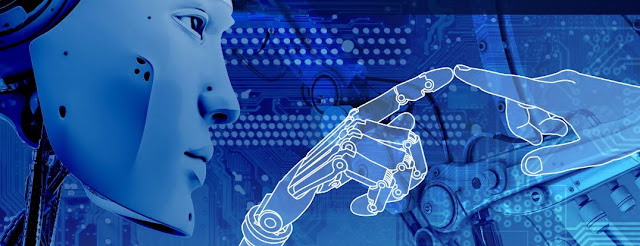Exploring the Future of Human-Robot Interaction: Introducing the Degree in Robotic Societal Systems
Introduction
In the rapidly evolving landscape of technology, the interaction between humans and robots has taken center stage. Robots have moved beyond being mere tools in industry and are now increasingly involved in our everyday lives. From companion robots to autonomous vehicles, robotic systems are becoming indispensable contributors to society. As the integration of robots in various domains continues to expand, it has become apparent that a new academic discipline is needed to address the challenges and opportunities arising from this robotic revolution. In this article, we present the concept of a groundbreaking new degree program: Robotic Societal Systems.
The Birth of a New Degree Theme
As robots become more prevalent, the need for professionals who can understand, develop, and manage robotic systems within the broader context of society has become evident. The degree in Robotic Societal Systems aims to bridge the gap between technology and humanity, exploring the interdisciplinary realms of robotics, artificial intelligence, ethics, and sociology. This program seeks to equip students with a comprehensive skill set, enabling them to shape the future of human-robot interaction in a responsible and beneficial way.
Curriculum Overview
The Robotic Societal Systems degree will feature an interdisciplinary curriculum that combines technical knowledge with social understanding. Students will delve into various subjects, including:
1. Robotics Fundamentals: Students will learn the fundamental principles of robotics, covering topics such as kinematics, control systems, and robot programming.
2. Artificial Intelligence and Machine Learning: Understanding the latest AI algorithms and machine learning techniques will be crucial for designing intelligent robotic systems.
3. Ethics and Governance: Ethical considerations surrounding robotic technology and its impact on society will be explored, preparing students to address real-world ethical challenges.
4. Human-Robot Interaction: This course will focus on understanding how humans and robots interact, emphasizing the design of user-friendly and socially acceptable robotic interfaces.
5. Societal Impacts of Robotics: Students will examine case studies and research on how robotic systems are transforming industries, economies, and human behavior.
6. Robotic System Design: A hands-on course where students will work on designing and building robotic systems that cater to specific societal needs.
7. Legal and Policy Issues: Understanding the legal implications of robotics and the development of policies for responsible robotic deployment will be covered.
8. Communication and Public Perception: Students will learn to effectively communicate complex robotic concepts to the public and address potential fears or misconceptions.
9. Entrepreneurship and Innovation: Encouraging creativity and innovation, this course will foster the development of new robotic applications and solutions.
10. Research and Capstone Project: The program will culminate with a research project or capstone, allowing students to delve deep into an area of interest within robotic societal systems.
Career Opportunities
Graduates of the Robotic Societal Systems program will find themselves well-prepared for a diverse range of career paths.
1. Robotics Researcher: Contribute to cutting-edge research in robotics and artificial intelligence, paving the way for future technological advancements.
2. Human-Robot Interaction Specialist: Work on designing intuitive and socially-aware robotic interfaces to enhance the user experience.
3. Robotic Ethicist: Consult with organizations and policymakers on ethical considerations in the development and deployment of robotic systems.
4. Robotic Systems Engineer: Develop and maintain robotic systems in industries such as healthcare, transportation, manufacturing, and entertainment.
5. Social Impact Analyst: Assess the societal implications of robotic technologies and provide recommendations for their responsible use.
Conclusion
The degree in Robotic Societal Systems represents an exciting leap into the future, where humans and robots coexist harmoniously for the betterment of society. By offering a comprehensive blend of technical expertise and social consciousness, this program prepares students to tackle the challenges of the robotic era head-on. As we embrace this transformative technology, it becomes imperative to have skilled professionals who can guide the integration of robots in ways that align with human values and aspirations. The Robotic Societal Systems degree is a vital step towards realizing this vision and empowering a new generation of responsible robotics pioneers.


Posting Komentar untuk "Exploring the Future of Human-Robot Interaction: Introducing the Degree in Robotic Societal Systems"